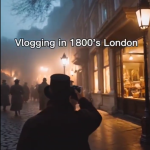Over the Top: A Soldier’s Dawn in the Trenches, 1917
The year is 1917. You wake up in the trenches, your uniform damp with the unrelenting moisture of the earthen walls surrounding you. The cold clings to your bones, and the air is thick with the familiar yet oppressive mixture of mud, sweat, and gunpowder. The scent of decay lingers—of bodies long buried under the churned-up soil, of food rations gone stale, of men who have not seen a proper bath in weeks.
Above, the sky is a dull, formless gray, the darkness of night giving way to the reluctant dawn. The rumble of distant artillery echoes like an oncoming storm, sending vibrations through the wooden planks beneath your feet. Somewhere along the trench, boots splash through stagnant puddles as soldiers shuffle into position. A rat, fat from scavenging the remnants of yesterday’s meal, scurries over your boot before vanishing into the shadows.
You tighten your grip on your rifle. It feels heavier in your hands today. Perhaps it is exhaustion. Perhaps it is fear. You try to recall the last time you slept peacefully, without the distant booms of shellfire rattling your ribs. It is a distant memory now, overshadowed by the ever-present uncertainty of survival.
Then, the signal. A sharp, piercing whistle cuts through the morning air, a sound that has become synonymous with fate. The moment you have dreaded is here.
Your breath catches as you prepare to climb the wooden ladder, your fingers curling around the frozen rungs. The weight of your helmet, the scratch of your uniform, the metallic scent of your bayonet—it is all so real, yet surreal. Around you, your fellow soldiers mirror your movements, their faces unreadable masks of determination, terror, and resignation.
One last breath. One last moment of stillness.
Then, you go over the top.
The world erupts. The sky screams as bullets zip past, kicking up fountains of mud where they strike. Explosions bloom across the battlefield, sending showers of earth and shrapnel into the air. The ground beneath you is slick with blood and rain. The cries of the wounded and dying blend into the cacophony of war. There is no time to think, only to move, to press forward through the chaos, to fight for survival in a land where life is measured in inches.
The trench, for all its misery, was a sanctuary compared to this. Out here, beyond its walls of sandbags and wood, there is nothing but the unknown—death or victory, pain or numbness. But there is no turning back now.
The war does not wait. The world does not pause.
So, you run. You fight. You survive—if luck allows.
And the battle rages on.


